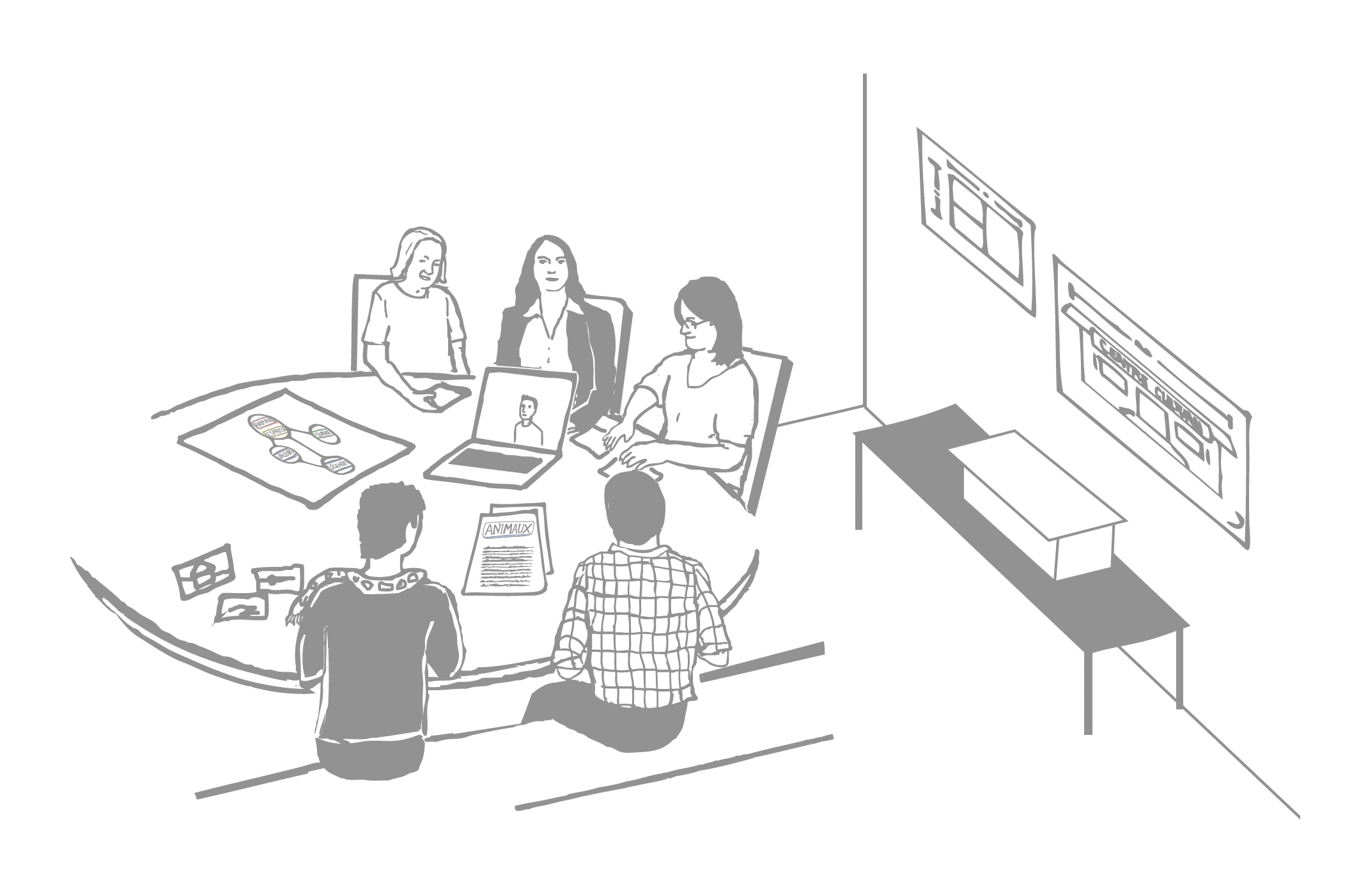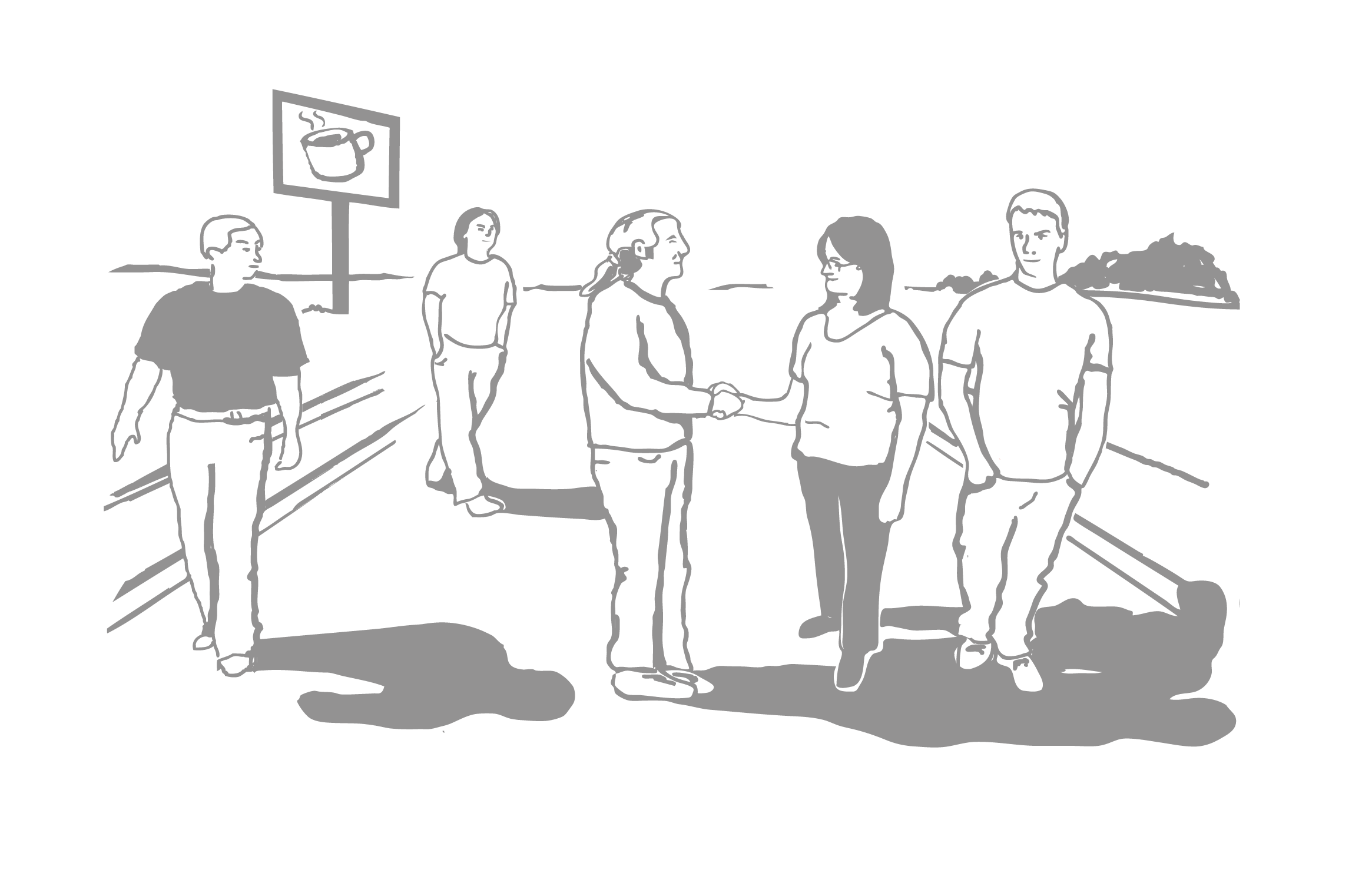Small actions of an extensive consultation
Meeting others
Consultation goes far beyond mere discussion; the latter does not guarantee that the proposed recommendations will be reflected in practice. Consultation is a commitment between two or more parties to achieve a mutually beneficial goal. But such a commitment does not come naturally. Each participant must act with sincerity and openness. They must recognize the necessary contribution of each person regarding the development of others whilst accepting that everyone plays an essential role in the development of others. They must also accept, just like his or her partners, the transformations that will come from this exercise. Consultation is a human experience, a collective learning process that has its doubts; it is developed with growing confidence as projects progress. It is a path mapped collectively with well-being and autonomy as the destination.

Carrying out a genuine consultation
Consultation is the key to any cultural transmission process. It encourages participation and initiates an ongoing conversation with all the project stakeholders by taking into consideration everyone’s needs and interests.
It shapes its own outcome, one step at a time. Collective effort, chance encounters, spontaneous emergence of opportunities may modify its development, but its goal will remain the same: to empower a population, not only for greater involvement in the decision-making process, but so that it may engage in improving its own well-being. As project endeavours mobilize and engage the community further, consultation activities will uncover aspects that no one would have contemplated.
Through its collaborative approach, consultation helps build a common vision, objectives and an action plan through dialogue and conversation. It helps to clarify issues and collectively find solutions that will be supported and defended by all those involved in the process. It fosters egalitarian relations and implies a mutual openness and respect for one’s identity. It recognizes the legitimacy of its participation and its influence and decision-making power.
The spirit of collaboration prevails in all stages of a true consultation. It is present from the very first contact and extends throughout activities of implementation and validation. It is reinforced by simple communication and dissemination strategies. It is commemorated with the project’s success and the mutual desire to prolong the conversation.
Developing personal skills
A cooperative project is a journey, an exploration of an unknown environment, a discovery of new faces. The path taken is just as important as the destination sought. At times there are detours, moments of pause and significant encounters that encourage us to prolong our stay. But first we must get going, leave the comfort of certainties and adapt, which is not always done effortlessly.
It is not easy to completely change our ways of working, but by striving for further progress in a new orientation we slowly acquire the skills that will allow a change of course.
We come to develop reflexes, recognize opportunities and overcome difficulties. We test tools and discover their use and effectiveness. Lessons are learned through mistakes and progress brings joy. We adopt an approach based on equality, openness, listening and respect. We favour interaction, dialogue and the sharing of ideas. We remain available, flexible and diplomatic. While working on a unifying project, we demonstrate considerable interest in others and a sincere desire for togetherness.
The learning processes of Indigenous research encourage the development of participatory approaches. They allow us to immerse ourselves in the unique context of a community’s cultural universe and cultivate resources that encourage learning and development.
To achieve this, we must ensure diversity among participants and support resourcefulness. We foster a sense of belonging to the project and encourage involvement. We gather various expertise and encourage forms of expression to obtain a comprehensive vision by making several voices heard.
We take into account the features specific to men and women. We facilitate intergenerational meetings. We grant significance to the integration of youth and welcome the elders’ contribution regarding customs and traditions. We demonstrate an understanding regarding the history of a community’s oppression.
We support collective decision-making. We develop communication and relationship building skills. We engage with governance structures. We complete the consultation process, which involves evaluating the results in context.
Engaging in dialogue
From start to finish, a collaborative process is a dialogue occurring among equals through conversation.
Conversation develops and consolidates interpersonal relationships. It is a convivial experience, an opportunity to exchange information and share views, a window into new knowledge. Gradually, from one person to another, from one meeting to another, each partner comes to discover something that was previously unknown, provided they listen carefully to what others have to say.
To listen, to better understand; to understand for better transmission. It is both the starting point and the destination of a true dialogue and a successful consultation.

Collaborating
Engaging in a participative process is just like contributing to the collective creation of a tapestry in which the quality of the thread, the colour arrangement and the precision in weaving are united as a coherent and significant whole.
To achieve this result, the spirit of collaboration must be sincere and present throughout all stages of the process. Each party's contribution must be respected and valued. Each person must find themselves reflected in the process and take satisfaction and pride in it.
Working together is a learning process that requires time and perseverance. From one project to the next, the experience becomes more and more enriching, for both individuals and communities; and the tapestries are all the more beautiful and solid!

Adapting to the context
A collaborative process is rooted in the community. It is developed in its own environment which must be taken into account.
The development of a project never stems from just one reason, and its implementation involves more than simply one method. Each situation generates a range of possibilities, and we must remain attentive to discover them.
For all matters, we must make an effort to understand the idiosyncrasies pertaining to the culture of others, not impose our personal values and perceptions, respect habits and traditions, be sensitive to the ways of being and acting of men and women, youth and elders, be accommodating regarding the choice of work methods and activities.
It is all about awareness and the ability to adapt to a context, the circumstances of mobilization and relevance.

